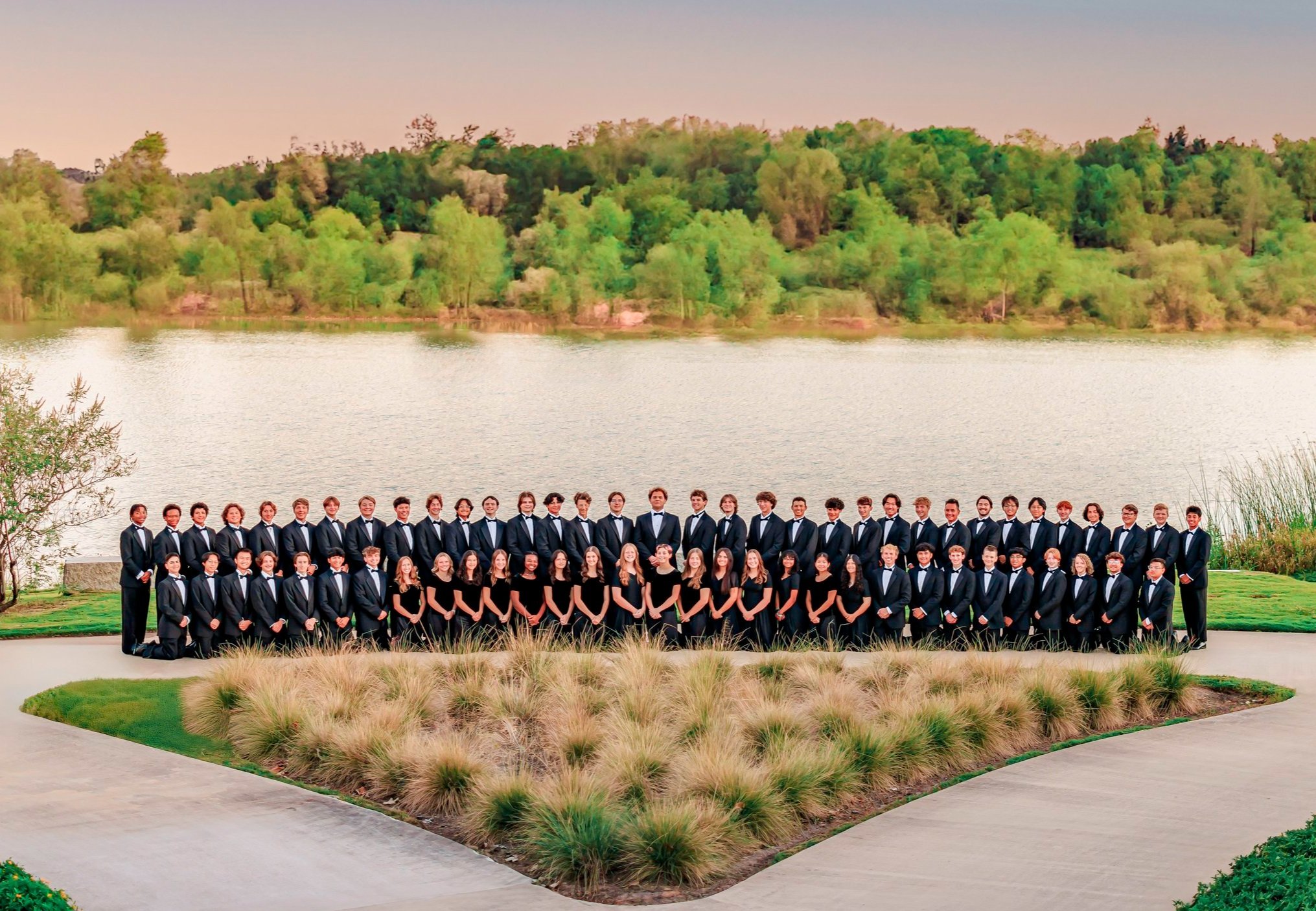
Cypress Woods High School
Wind Ensemble
Cypress, Texas
2:15pm
December 20, 2024
Ballroom 375 AB
Music Selections
-
Björk Gudmundsóttir ➤
arr. by Henry L. DornWinner of Cannes Film Festival’s Palm d’Or in 2000, Dancer in the Dark is a genre-defying cinematic creation, incorporating elements of melodrama, documentary, musical, and experimental film, shot in the manner of cinema vérité. The audience is made to feel as though they are a participant, rather than an observer, in the tumultuous and descending trajectory of the main character, Selma.
-
Percy Fletcher ➤
ed. by Brant KarrickVanity Fair, one of those uniquely remarkable pieces that is immediately revered by audiences and musicians alike, was first published by Hawkes and Son in London in 1924, and was later transcribed for orchestra. The aim of this edition is to not only make this decidedly precious work available to modern concert bands, but also to elevate it to its rightful position among the standard wind repertoire.
-
Jon Bubbett ➤
Tom Harrington, ConductorImagine soaring … twisting and turning as you plunge through clouds into the bright azure blue … Sky Bound! Capture the feeling and exhilaration of flight, and imagine what it would sound like in the music you make! Encourage students to close their eyes, unleash their imaginations and re-create those visual images into sound.
-
Jorge L. Vargas ➤
Gabrielle Crouch, Conductor
This work depicts a dying star in its final stages of existence, when it expands and engulfs everything in its path. With accidentals, dissonances, and unique chord structures, this is a fast-paced musical ride that is perfect for developing bands! -
2a. March
2b. Dance of the Sugar Plum Fairy
2c. RussianPyotr Ilyich Tchaikovsky ➤
trans. by Jacco Nefs
Kevin Sedatole, ConductorTchaikovsky made a selection of eight of the numbers from the ballet before the ballet's December 1892 première, forming The Nutcracker Suite, Op. 71a, intended for concert performance. The suite was first performed, under the composer's direction, on 19 March 1892 at an assembly of the St. Petersburg branch of the Musical Society. The suite became instantly popular, with almost every number encored at its premiere, while the complete ballet did not begin to achieve its great popularity until after the George Balanchine staging became a hit in New York City.
-
I’ve been thinking a lot lately about all the opportunities we’re given day-to-day to try something new or to go somewhere we’ve never been before—the opportunity to take a spontaneous road trip, to go see a concert by a band we’ve never heard of at a venue we’ve never been to, to try that new restaurant down the street where the menu is in a language we don’t quite understand. Some people have an innate sense of adventure, who go-with-the-flow, who live life for the unexplored, and I couldn’t be more inspired by them.
-
Leroy Anderson ➤
Gabby Crouch, Mark Edenfield, & Shirley Holstien, ClarinetNo one does entertaining program music like Leroy Anderson. This is a rollicking extravaganza meant to leave the audience breathless.
-
Elena Specht ➤
Dana Pradervand-Sedatole,ConductorZigzag uses playful rhythmic and melodic patterns to create a lively and unpredictable texture. A core motive of two eighth notes is introduced, developed, and passed between low- and high-voiced instruments, while a contrasting lyrical melody twists and turns up and down the scale. Surprising rhythmic accents and syncopation combine with registral displacement and abrupt changes in direction to result in music that zigs and zags in unexpected ways.
-
Joaquin Turina ➤
trans. by Alfred ReedLa Procession du Rocio was given its premiere in Madrid in 1913. The music portrays a festival and procession that takes place in the Triana neighborhood of Seville, and is filled with wonderful idiomatic Spanish musical elements. Alfred Reed’s marvelous transcription created in 1962 remains an enduring staple in the repertoire for wind bands.
-
Fred Jewell ➤
ed. by Timothy RheaMost marches reserve the instrumental “fireworks” for the trio interlude – also known as the “break-up” or “dog-fight” strain. In Battle Royal – composed in 1909 when Jewell’s euphonium playing skill was near its peak – the lower and upper brass begin their melody-countermelody “battle” at the introduction and never let up. Battle Royal is the obvious work of a circus musician who knew how to generate circus crowd excitement.
Musicians




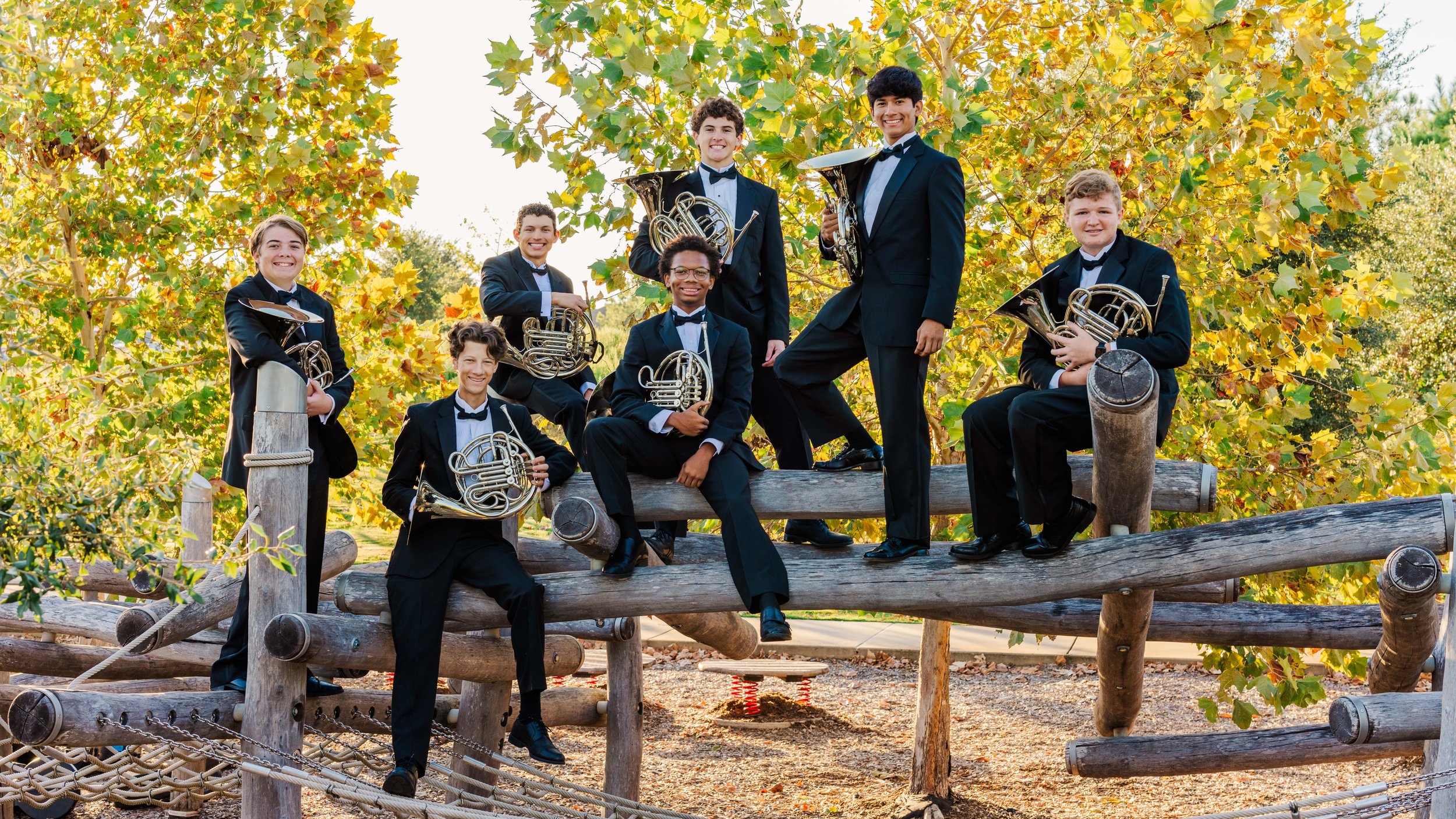
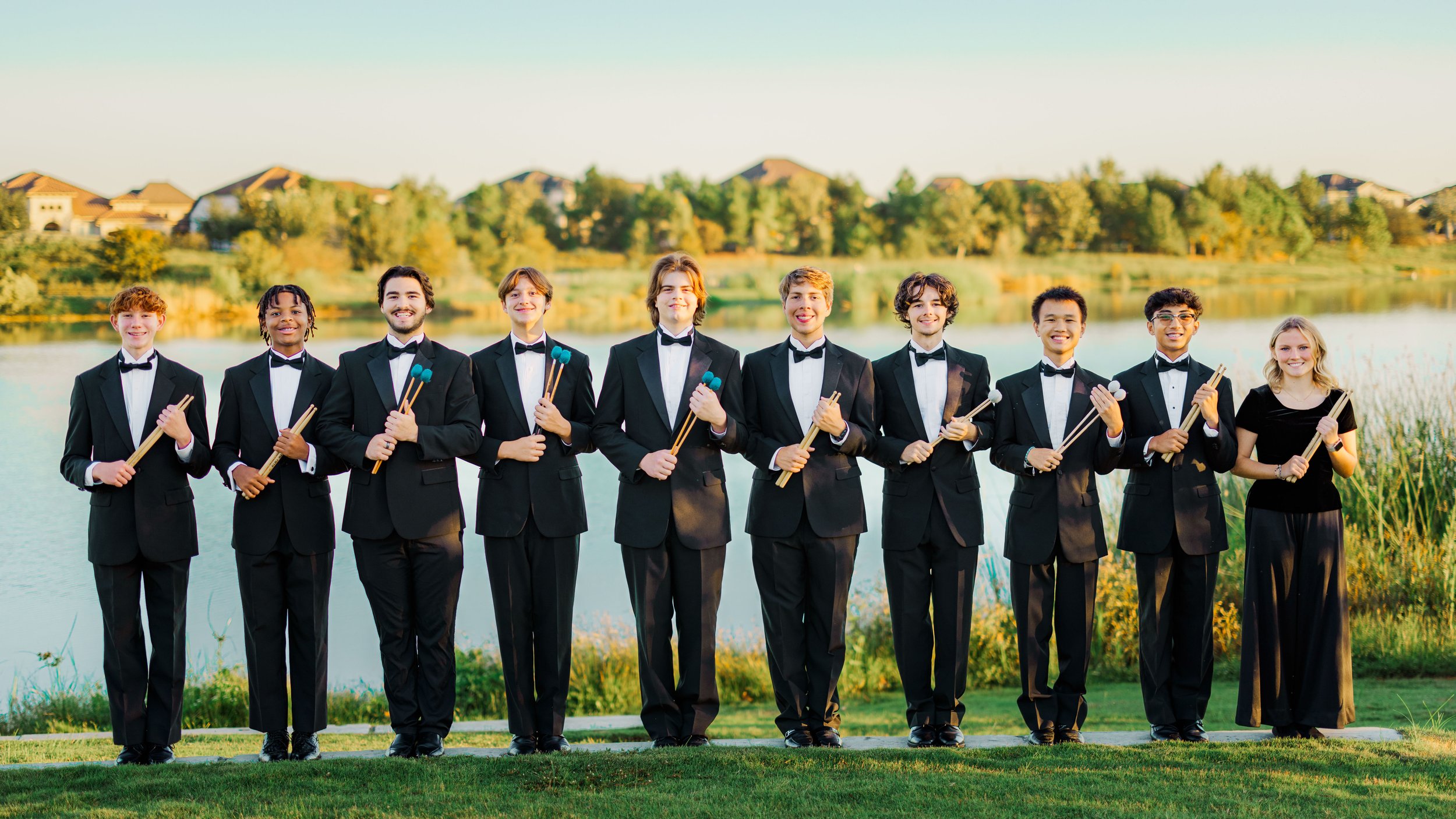


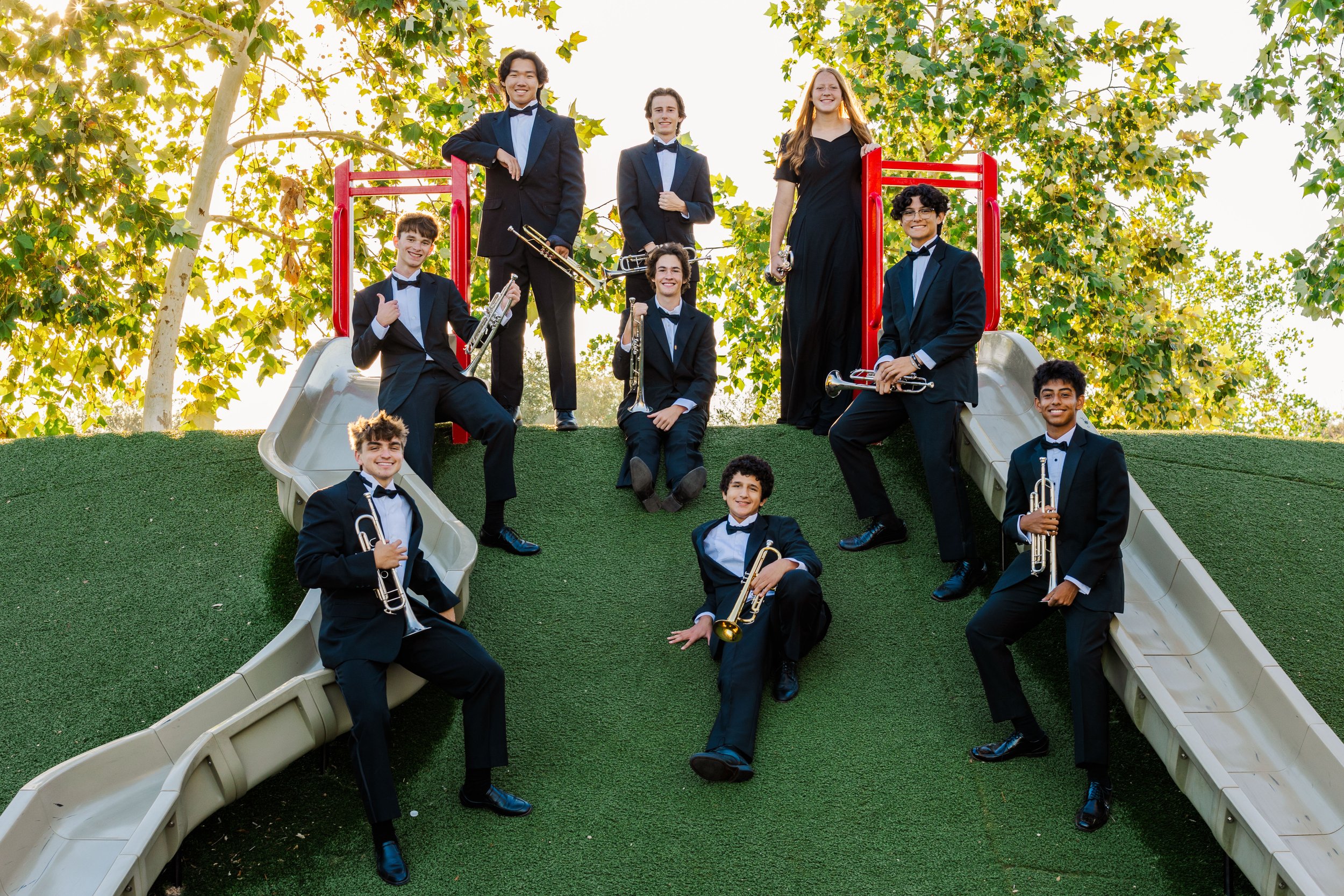

Conductors & Guest Artists
-

T.J. Peterman
Director of Bands
-

Gabrielle Crouch
Assistant Director of Bands
Clarinet -

Cinjin Casillas
Director of Percussion
-

Samuel Belcher
Assistant Director of Bands
-

Khalil Sanders
Director of NOVA and Winter Guard
-

Tom Harrington
Guest Conductor
-
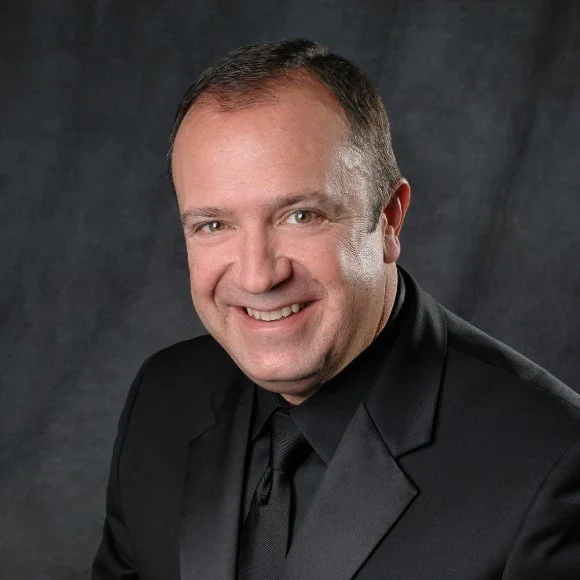
Kevin Sedatole
Guest Conductor
-

Dana Pradervand-Sedatole
Guest Conductor
-

Shirley Holstien
Clarinet
-

Mark Edenfield
Clarinet
